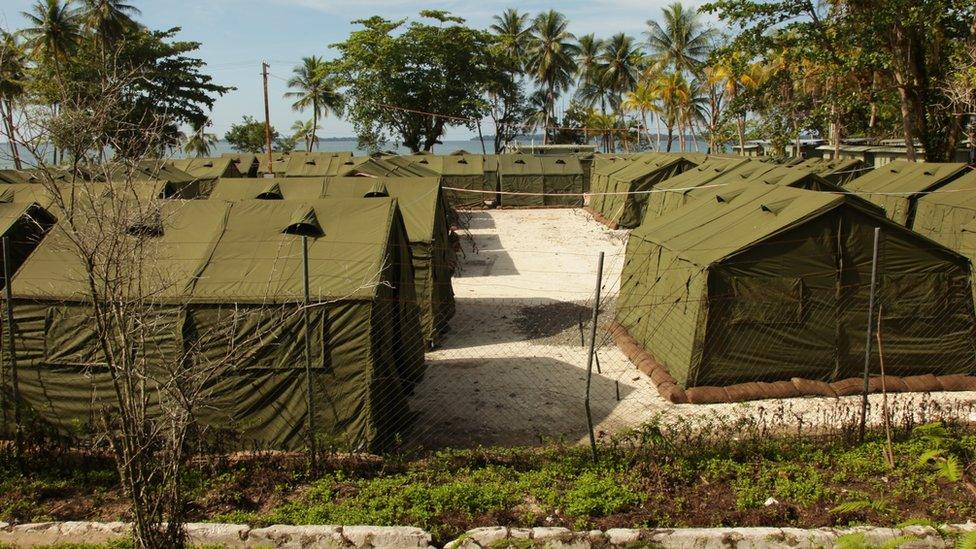Manus Island: Why two refugees fear Australia's exit
- Published
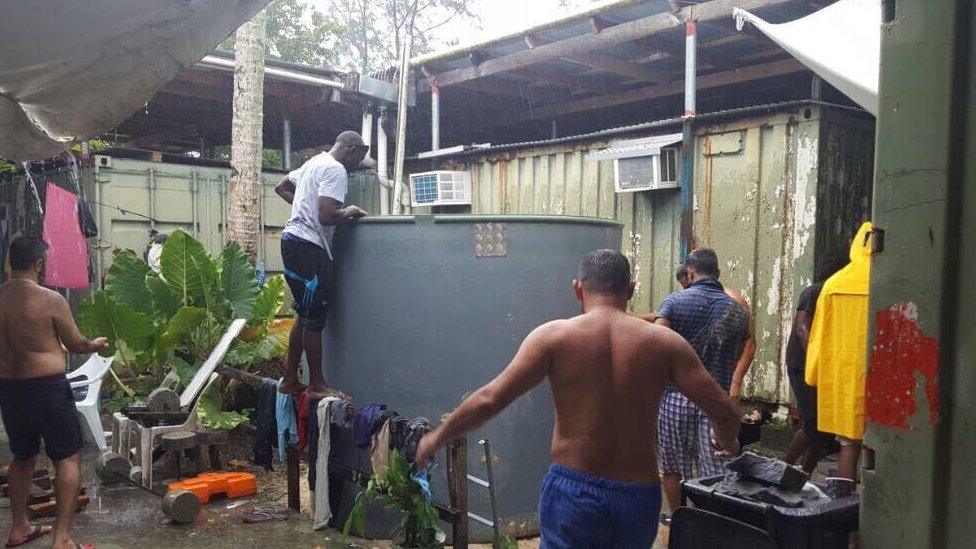
Many refugees do not want to leave an Australian detention centre, and are stockpiling food and water
A controversial Australian detention centre that has held asylum seekers in Papua New Guinea is scheduled to close on Tuesday.
First set up in 2001, the Manus Island centre was shut down in 2008 before the Australian government re-opened it in 2012. Last year, Australia said it would again close the facility after a PNG court ruled it was unconstitutional.
Since 2013, Australia has detained all asylum seekers who arrive by boat on Manus Island and Nauru, a small Pacific nation.
Canberra has said the policy deters people smuggling and prevents deaths at sea, but the centres have been described by the UN and human rights groups as cruel.
Earlier this year, Australia offered compensation totalling A$70m (£41m; $53m) to asylum seekers and refugees detained on Manus Island who alleged they had suffered harm while there.
About 770 asylum seekers and refugees - all of whom are men - remain on Manus Island, according to an estimate by Human Rights Watch last week.
Adding to the complexity, many are now refusing to leave the detention centre, citing fears for their safety and uncertainty about their future.
Australia has set up a transit centre nearby at East Lorengau on Manus Island, but it is unclear when, or if, the detainees will go there. Also uncertain is how many refugees on Manus and Nauru will ultimately be accepted under a US resettlement deal.
Here, two refugees on Manus Island speak about the looming closure, in their own words.

Abdul Aziz Adam, 24
Refugee from Sudan
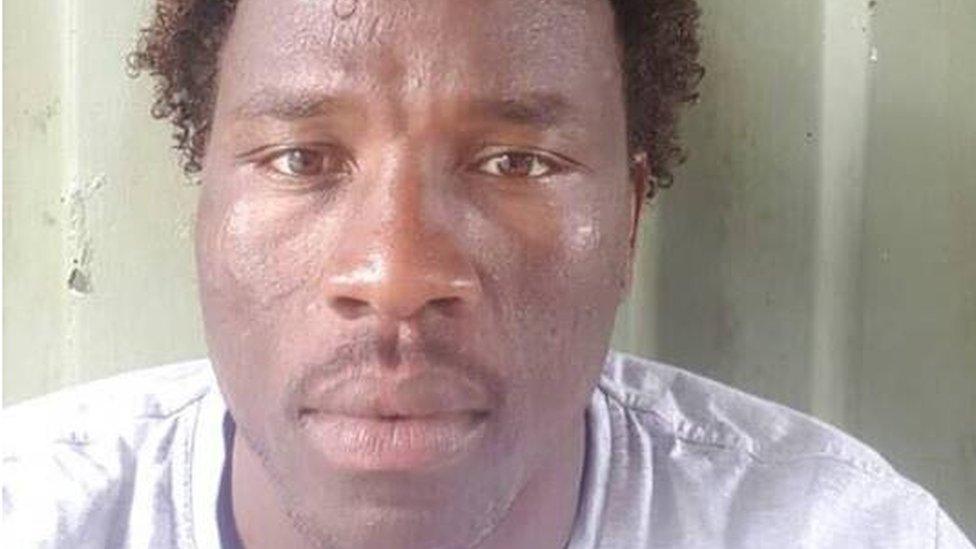
Abdul Aziz Adam has been on Manus Island for more than four years
The current situation at the detention centre is just like hell. We are living in a situation where we don't know what is going to happen to us and we feel scared and depressed, tired and anxious.
We are receiving threats from the locals saying "if you guys come into the town we will kill you one by one, there will be a lot of blood-shedding". There's not even a word I can use to describe our feelings and our current situation.
Everyone just wants to know what's going on exactly. The Australians are trying to walk away. Today is the last day for the security guards [to be in the centre]. Tomorrow there will be none of the Australian staff around the detention centre and then... even the local guards will be gone. No one will be here to provide for our safety or security.
The welfare staff, we haven't seen them for the last three days, all of them have gone. Even the medical service, they are also not here any more. We have been given our medical records and a supply of our medication for one month, and they told us: "If you guys run out of medication or fall sick, or anything, you have to go to the local hospital."
We have been told they are going to shut down the services totally in the detention centre, so from Tuesday morning we're not going to have anything. Electricity, water and food, those basic services aren't going to be there. We are stockpiling water and dry biscuits to prepare. We are also collecting rainwater to drink when there will be no drinking water for us.
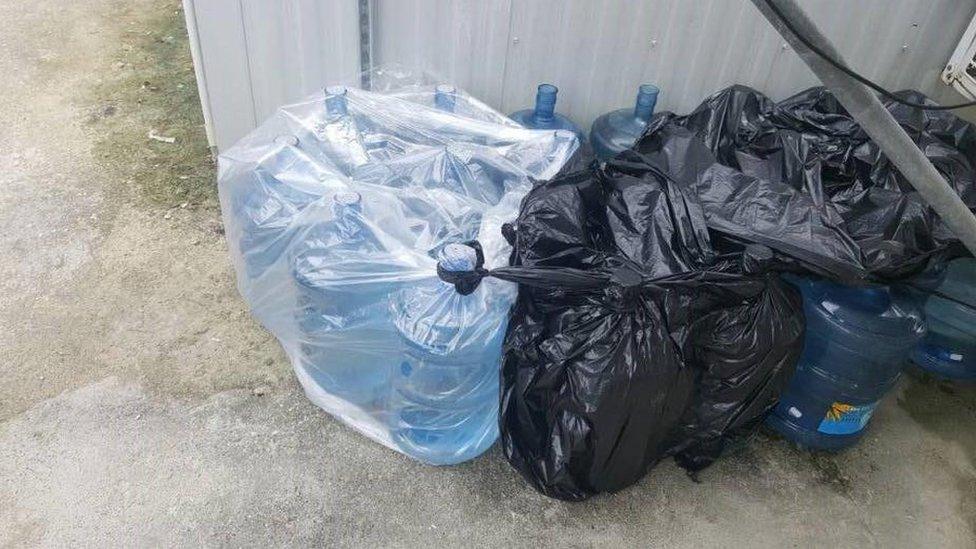
The men say they are stockpiling water and food
The level of stress is really high at the moment. That is what's made everyone really sick and really scared. People go to sleep at night time but no-one really sleeps. Some guys haven't slept for the last three days.
They're scared, frustrated, anxious. Some of them are not able to even say a word. People are just languishing around at the centre, feeling despair, thinking of their family, thinking of themselves and thinking, what is going to happen to me? How long am I going to be behind these bars?
Whatever happens we are not going to leave the detention centre. The Australian government just wants to move us from one detention to another and then walk away. We are preparing to die in the detention centre rather than move from this place into the community.

Behrouz Boochani, 34
Refugee from Iran
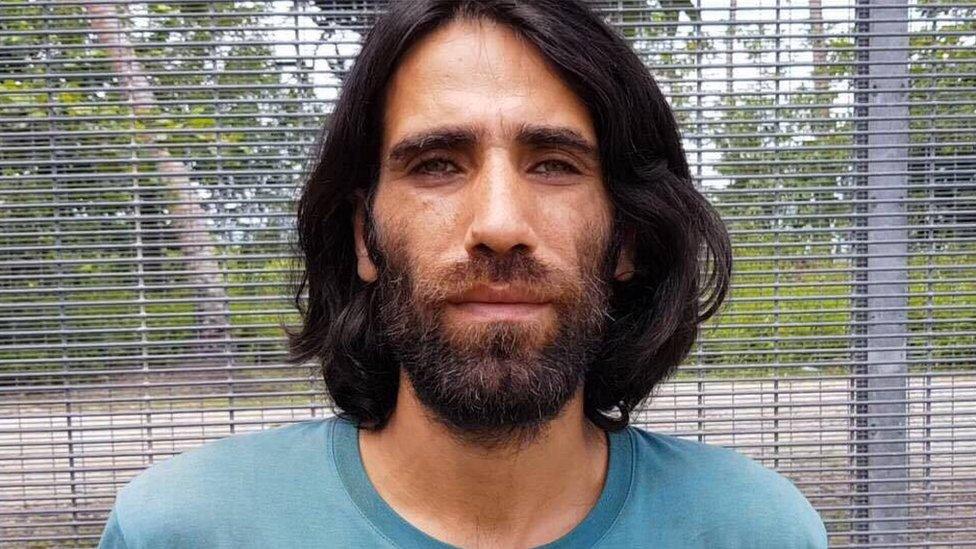
Behrouz Boochani says the detainees fear for their safety
All the people have the same experience - they are all saying they have nightmares every night.
We don't feel safe, at any time we expect someone could attack us in the detention centre and outside. It's like you're waiting for something really bad to happen but you don't know what it will be exactly.
So we are just waiting to see what will happen. The important thing is that the refugees are determined to stay and our resistance is peaceful. We are not going to make any violence.
We will resist in peaceful way. If the [authorities] want to use force, they will pay the costs. All of the media is watching Manus at the moment, Amnesty International is here, and the UNHCR.
We don't want to play with our lives, we don't want to go out to danger.
We have complex feelings about the US deal. One on hand America is a chance to get freedom in a safe country, but on the other side we also don't trust the [Australian] government, refugees don't trust the deal.
They announced the deal last year, but after a year they've only taken 25 refugees from Manus to America.

Half of the centre has already been demolished, refugees say
If the [Australian] government is honest with the deal and they want to send people to America, then why don't they keep the people in the detention centre [for now]?
Why do they insist on taking the people out and processing them in the Lorengau community. Why do they want to put people in danger?
Refugees don't want to play with their future, especially when they've been recognised as refugees under international law - they deserve freedom in a safe space.
Reporting by the BBC's Frances Mao
- Published26 October 2017
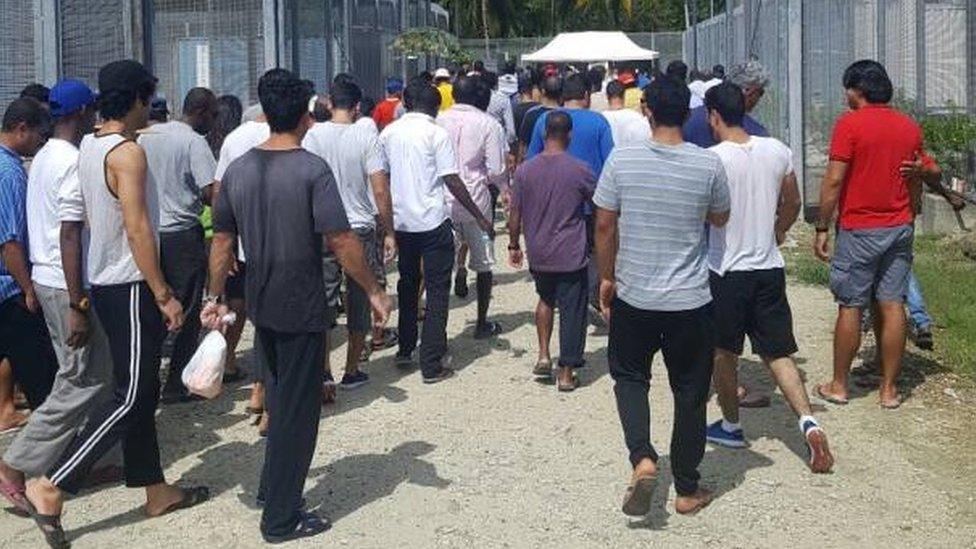
- Published18 October 2017
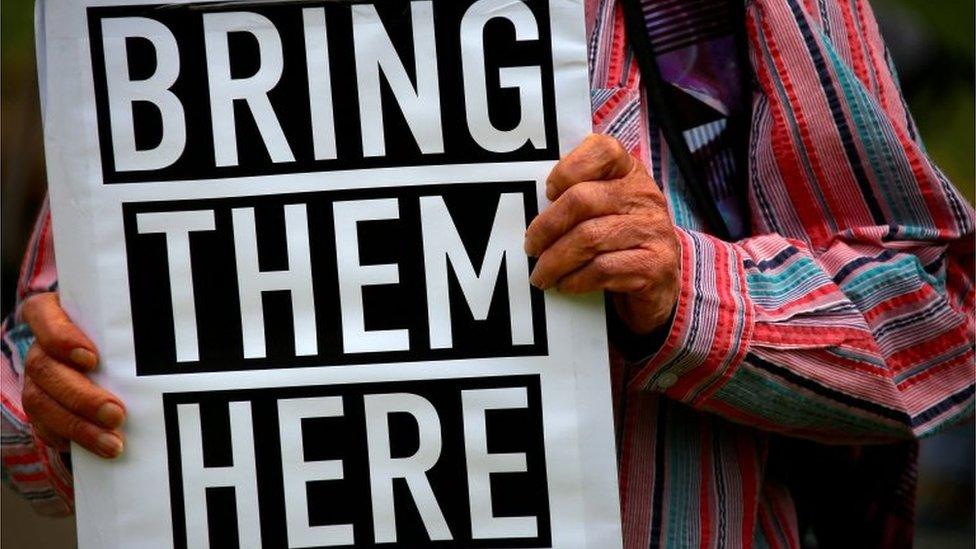
- Published2 October 2017
